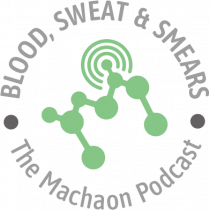Complement Testing
Early Identification of Complement Dysfunction is Critical
Machaon Diagnostics provides industry-leading turnaround times for complement genetics, activation markers and related tests to support our clients managing these patients. Dysregulation of the complement system can quickly lead to catastrophic outcomes. Underlying root causes can be genetic, functional, autoimmune and other. Immediate recognition of factors causing clinical complications is essential for reducing patient morbidity/mortality (e.g., kidney damage while waiting for diagnosis/treatment decision) and wasteful spending (e.g., plasmapheresis when eculizumab is most appropriate).
Complement Testing with us:
- Industry-leading turnaround times
- Early detection of complement dysfunction
- Complement gene sequencing in 48 hours (STAT)
- sC5b-9 levels in 24 hours, 7 days a week
- Anti-CFH Autoantibody levels
Complement Testing
aHUS Genetic Panel 3.0
STAT: < 48 hours (M-F)
NGS
Draw Tube: Purple Top
The clinical presentation of thrombotic microangiopathy (TMA) has been associated with multiple genetic disease including atypical hemolytic uremic syndrome (aHUS), thrombotic thrombocytopenic purpura (TTP), C3 glomerulopathy (C3G, comprising dense deposit disease and C3 glomerulonephritis), congenital B12 deficiency and others. These are difficult-to-diagnose, very sick patients with distinct treatment depending on the nature of the TMA. Accurate, rapid diagnosis is critical. Additionally, patients with the C5 p.Arg885 polymorphism may respond poorly to the current approved therapy, eculizumab. Note: this is the third time (3.0 name designation) we have updated the gene list to reflect the most current understanding of aHUS/TMA in the scientific literature.
Anti-CFH Antibody
STAT: < 48 hours (M-F)
ELISA
Draw Tube: Red Top
Factor H is a regulator of the alternative complement activation pathway. Acquired Factor H deficiency due to autoantibody production can lead to overactive complement. Continuous complement activation is associated with development of atypical Hemolytic Uremic Syndrome (aHUS) and Dense Deposit Disease (DDD).
C3 Nephritic Factor
STAT: < 1 week
Ratio
Draw Tube: Red Top
C3 Nephritic Factor is an autoantibody. It stabilizes C3 convertase. C3 Nephritic Factor is associated with approximately 80 percent of patients with DDD; it is also seen in approximately 40 percent of C3GN patients. It's not specific; however, detection of C3 Nephritic Factor supports the diagnosis of C3GN or DDD.
CH50
STAT: < 24 hours (M-F)
Cell Lysis
Draw Tube: Red Top
The CH50 is the most common assay to measure total complement activity in the classical complement pathway (C1 through C9) by adding patient serum to sheep RBC coated with anti-sheep antibodies. The minimum dilution that lysis 50% of the cells determines the CH50.
Soluble Complement 5b-9 (sC5b-9)
STAT: < 24 hours (7 days a week)
ELISA
Draw Tube: Purple Top
Elevations in soluble Complement 5b-9 (sC5b-9) have been associated with increased activation of the alternative complement pathway. Increased complement activation may be seen with aHUS and other TMAs, and may be a sensitive early predictor of the development of transplant associated TMA. In a cohort of 67 pediatric patients who had an allogeneic HSCT, an increase in sC5b-9 concentration from baseline had 100% sensitivity and 53% specificity for TA-TMA.
STEC PCR
STAT: < 48 hours (M-F)
RT-PCR
Draw Tube: Cary-Blair Transport Medium
The STEC-PCR assay can be confirmed by the detection of a Shiga toxin-producing Escherichia coli (STEC) in the patient’s stool sample. The test looks for the presence of ST-1 and/or ST-2 genes in stool cultures. The most common cause of HUS is STEC. STEC-HUS accounts for over 90 percent of cases of HUS in children in the US and it is one of the main causes of acute kidney injury in children under the age of three years.



In this episode we hear an interview with Mike Ero, Machaon Diagnostics’ Founder and CEO. A Clinical Laboratory Scientist (CLS) who added an MBA, Mike started Machaon Diagnostics back in 2003 at the age of 29. Just how did all of that come about? Listen and find out.

MICHAEL ERO
CH50
Available through Clinical Trials Services. The CH50 is the most common assay to measure total complement activity in the classical complement pathway (C1 through C9) by adding patient serum to sheep RBC coated with anti-sheep antibodies. The minimum dilution that lysis 50% of the cells determines the CH50.